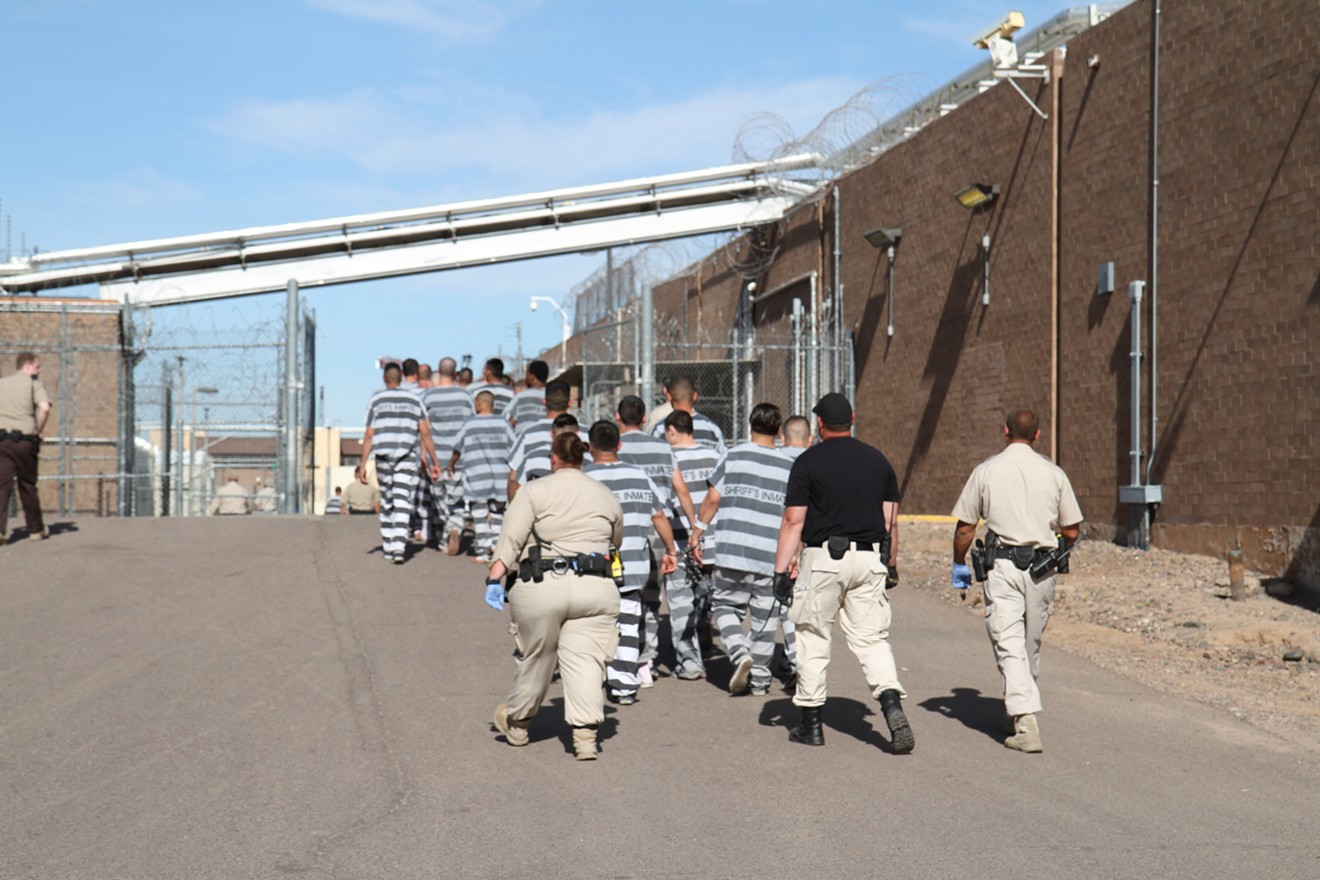The defendant’s name on the docket has changed from Arpaio to Penzone. The tone in the federal courtroom has changed. Words like collaboration replaced those like obstruction. But many of the racial bias problems that plagued the Maricopa County Sheriff’s Office persist, lawyers on Wednesday told the federal judge overseeing reform of the embattled agency.
“This agency still has problems with racially biased traffic stops,” said Cecilia Wang, attorney for the American Civil Liberties Union, which represented Latinos who sued the MCSO in a class-action discrimination lawsuit. “There are still supervisors in the agency who are still very resistant to change.”
MCSO attorneys acknowledged as much in a status hearing marking progress toward implementing court-ordered reforms. MCSO lawyer Joseph Branco told U.S. District Court Judge Murray Snow that a statistical review of enforcement data had flagged 211 deputies whose treatment of suspects was ethnically uneven. However, the cooperating agency, ACLU, and Justice Department attorneys had narrowed the list of problematic deputies to 35.
Together, the two sides in the class-action suit want to use the data to find out if some deputies are unwilling to embrace racially neutral policing, if some of their supervisors remain overly protective of their team and if a proposed training regimen adequately enables deputies to change old habits.
Snow originally ordered the reforms and the criminal prosecution of Joe Arpaio for failing to adhere to them. The judge expressed gratitude to MCSO, Sheriff Paul Penzone and key staff for their efforts and praised everyone in the case for their cooperation. “It sounds to me that the parties are doing their best to work together cooperatively,” Snow said, before adding, “It appears to be a deep-seeded, endemic problem.”
“My concern is these 35 deputies,” Snow said.
“If they are still on patrol and unsupervised and uncounseled,” and they still show evidence of biased enforcement, he explained, “and they are left there … I advise the sheriff to look closely at that.”
[image-3]Looking on in a dark business suit, Sheriff Paul Penzone took notice and explained his reactions to the press shortly afterward.
“You can’t help people be successful if you can’t point out their failings, and that’s what today’s hearing was all about. Resistance won’t be tolerated,” Penzone told reporters.
He didn’t quibble with the ACLU’s characterizations.
“Absolutely there are individuals within the organization that are resistant to these changes,” he said. “It’s our response to give you everything you need to change. Should you fail, it should be the individual’s responsibility.”
Asked directly if the 35 holdout deputies should remain on duty, Penzone didn’t hesitate: “Yes.”
He said the key was training and supervision and that some deputies might need to be reassigned to stronger leaders. He pointed out that no investigation has determined if they were guilty of any wrongdoing.
Some Latino activists who feuded with Arpaio’s MCSO, men like Salvador Reza, were less convinced after sitting through yet another court hearing, as he has for 10 years.
“They identify 35 really bad guys and they want to retrain them? It’s all political. You can go and retrain a Nazi, but are you going to get his philosophy out of his heart?” Reza said.
He said he remains troubled that some of Arpaio’s key advisers remain in command positions.
“How do you expect change, if all the top district commanders are Arpaio men? Nobody ever talks about it. That’s what’s frustrating,” Reza said.
The hearing came days after an Arizona State University report was released that found that discriminatory traffic stops continue at the sheriff’s office. But the data was about four years old. It also comes as federal monitors are due to release their latest progress report on compliance with Snow’s orders.
Snow was customarily direct.

Former Maricopa County Sheriff Joe Arpaio is gone, but at least 35 of his deputies have clung to the old ways of racial bias, court and other officials agreed.
MCSO
But most of Snow’s assessments were positive. He spoke about parachuting into training and said he saw “good faith training” and innovative ways to get the message across.
“It takes time. It has taken some time to get the training ready. In this case, frankly, it’s taken quite a bit of time,” Snow mused. “We have that tough nut to crack that we have get buy-in from the supervisors.”
He turned his remarks to Penzone, without naming him.
“It’s his problem. If he wants to resolve this, we will help him,” Snow said. “I don’t expect that if he comes in and gets elected it’s easy. We want to help the sheriff in a gentle way, but a firm way … so that we have an unbiased sheriff’s office.”
Snow green-lighted a reform plan Wednesday based on MCSO, DOJ and ACLU consultations with the federal monitors. Penzone accepted Snow’s critique.
“I owned it the day I walked through the door. It’s not a one-man or one–woman job,” Penzone told reporters. “Rome was not built in a day and I’m not going to undo a quarter century of an issue that infected this organization in nine months.”
He considered the hearing a milestone.
“Today was a great stride,” Penzone said. “The word I heard most today was collaboration.”
He added: “The judge has concluded we’ve made great progress.”
But now it’s his name on the docket, as MCSO’s critics have shifted their gaze his way.
The old name on the docket is still in the spotlight, too. Arpaio awaits the final chapter in his criminal case, but knows, courtesy of a presidential pardon, he will not face criminal sanctions for his role in directing the agency’s maligned immigration enforcement policies.
The judge in that case is due to rule by October 4 whether to toss the entire case out, verdict, rulings and all, along with sentencing. Earlier Wednesday, dozens of Democratic congress members petitioned that judge, U.S. District Judge Susan Bolton, not to vacate or dismiss the case and argued that President Donald Trump’s pardon was an unlawful encroachment of power into the judicial branch.













